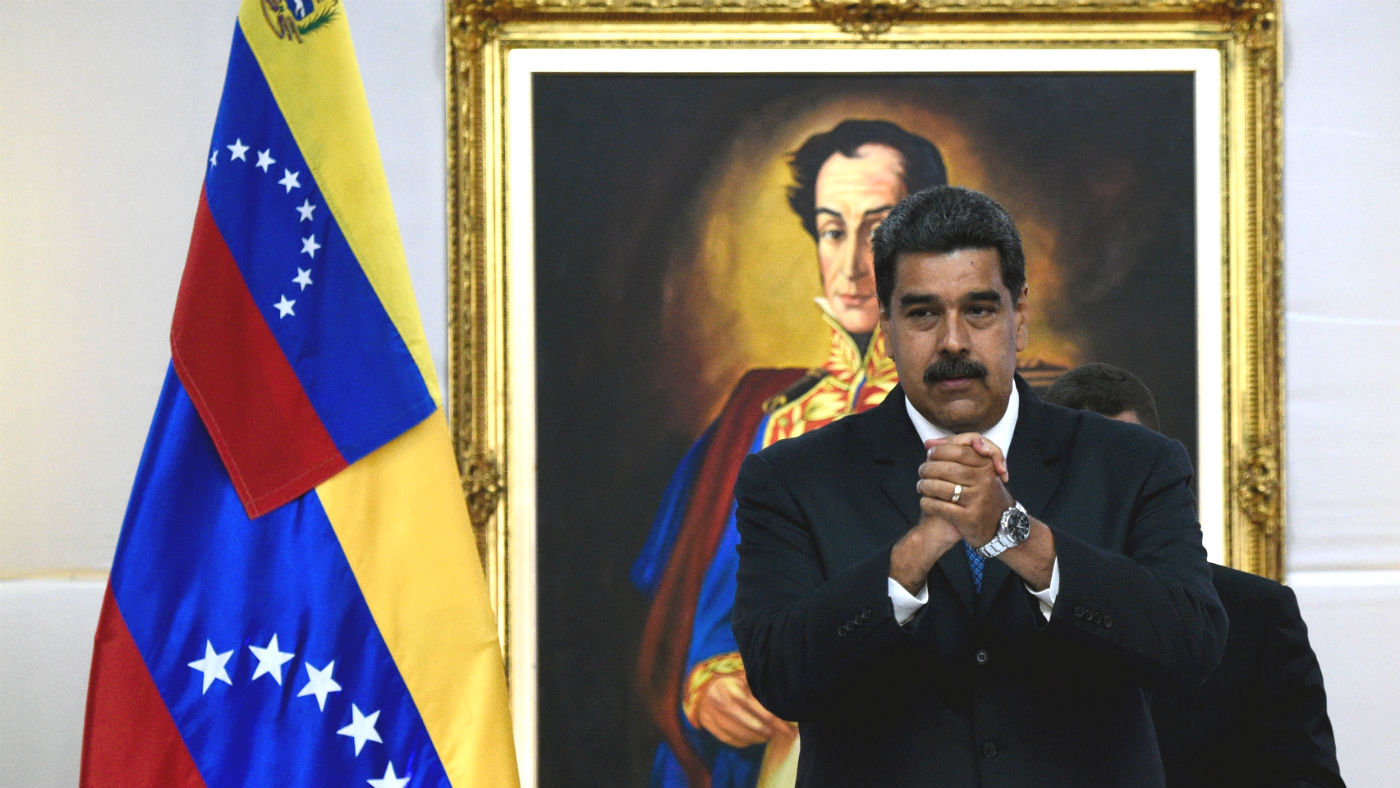How Nicolas Maduro won crisis election
Opposition boycott handed socialist incumbent victory despite record low approval ratings

A free daily email with the biggest news stories of the day – and the best features from TheWeek.com
You are now subscribed
Your newsletter sign-up was successful
Nicolas Maduro has won a second six-year term as Venezuela’s president, after the main opposition party refused to contest Sunday’s vote when many of its candidates were barred from running or exiled.
Over a million Venezuelans have left in search for a better life abroad in recent years as the county’s once robust oil industry has collapsed, leaving widespread shortages of food and medicines.
Those who have remained have been unable to withdraw cash and are often forced to queue for hours for food. The collapse in the price of oil since its 2014 peak has left Venezuela’s economy in tatters and coincided with a rise in poverty and crime.
The Week
Escape your echo chamber. Get the facts behind the news, plus analysis from multiple perspectives.

Sign up for The Week's Free Newsletters
From our morning news briefing to a weekly Good News Newsletter, get the best of The Week delivered directly to your inbox.
From our morning news briefing to a weekly Good News Newsletter, get the best of The Week delivered directly to your inbox.
“Polls suggest voters overwhelmingly blame Mr Maduro for their mounting problems,” The Independent reports.
Last year it was reported that many of the animals in the national zoo had starved to death – which many saw a symbol of the country’s problems.
Tainted election
Despite the huge difficulties facing the country, Maduro, who took over from socialist president Hugo Chavez after his death and won a razor-thin vote back in 2013, has been returned to power after the main opposition Democratic Unity coalition boycotted the vote, claiming it had been rigged.
A free daily email with the biggest news stories of the day – and the best features from TheWeek.com
Their assertion has been backed by the US, the EU, the UN Human Rights Council and neighbouring South American countries, which have all voiced concern over voter fraud orchestrated by the government.
Opposition boycott
It appears the opposition’s call for its supporters to boycott the election meant less than half of eligible voters turned out.
However, Javier Corrales, a Venezuela expert at Amherst College, told the Associated Press that the opposition's sit-out strategy could be as disastrous as its boycott of congressional elections in 2005.
On that occasion, the ruling party swept up all seats, giving it the ability to pass legislation removing presidential term limits that further strengthened Chavez’s grip on power.
“The irony is that this is the least democratic election of all but it's also the best chance the opposition has ever had,” Corrales said, before yesterday’s vote.
“If Maduro wins by a large margin, he'll take it is as a green light to continue radicalising and moving in the direction of completely destroying the private sector.”
-
 6 of the world’s most accessible destinations
6 of the world’s most accessible destinationsThe Week Recommends Experience all of Berlin, Singapore and Sydney
-
 How the FCC’s ‘equal time’ rule works
How the FCC’s ‘equal time’ rule worksIn the Spotlight The law is at the heart of the Colbert-CBS conflict
-
 What is the endgame in the DHS shutdown?
What is the endgame in the DHS shutdown?Today’s Big Question Democrats want to rein in ICE’s immigration crackdown
-
 Epstein files topple law CEO, roil UK government
Epstein files topple law CEO, roil UK governmentSpeed Read Peter Mandelson, Britain’s former ambassador to the US, is caught up in the scandal
-
 Iran and US prepare to meet after skirmishes
Iran and US prepare to meet after skirmishesSpeed Read The incident comes amid heightened tensions in the Middle East
-
 Israel retrieves final hostage’s body from Gaza
Israel retrieves final hostage’s body from GazaSpeed Read The 24-year-old police officer was killed during the initial Hamas attack
-
 China’s Xi targets top general in growing purge
China’s Xi targets top general in growing purgeSpeed Read Zhang Youxia is being investigated over ‘grave violations’ of the law
-
 Panama and Canada are negotiating over a crucial copper mine
Panama and Canada are negotiating over a crucial copper mineIn the Spotlight Panama is set to make a final decision on the mine this summer
-
 How oil tankers have been weaponised
How oil tankers have been weaponisedThe Explainer The seizure of a Russian tanker in the Atlantic last week has drawn attention to the country’s clandestine shipping network
-
 Why Greenland’s natural resources are nearly impossible to mine
Why Greenland’s natural resources are nearly impossible to mineThe Explainer The country’s natural landscape makes the task extremely difficult
-
 Iran cuts internet as protests escalate
Iran cuts internet as protests escalateSpeed Reada Government buildings across the country have been set on fire